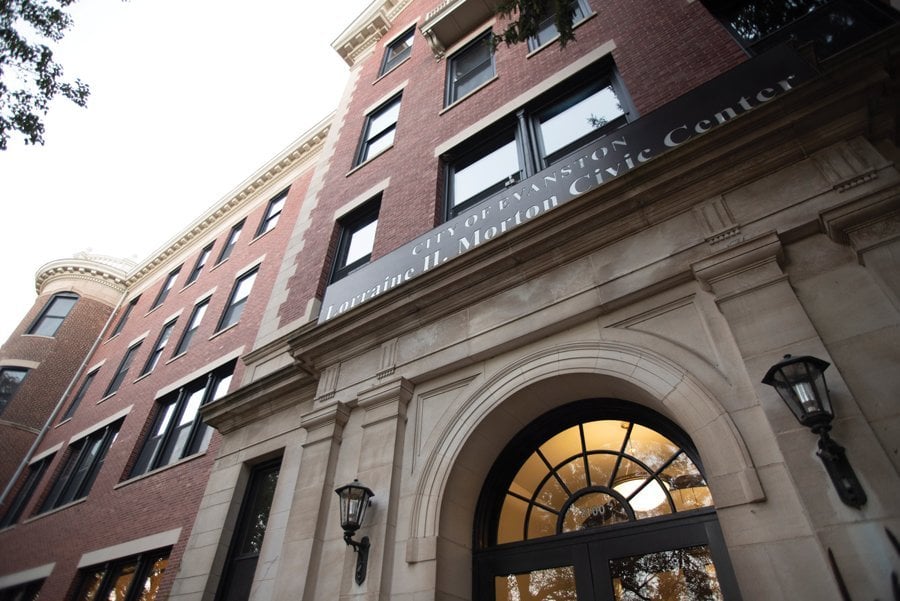Proposal to replace Board of Ethics headed to City Council from Rules Committee
Daily file photo by Colin Boyle
The Lorraine H. Morton Civic Center. On April 12, the Rules Committee voted to advance a proposal to replace the city’s Board of Ethics with a single Special Counsel.
April 20, 2021
City Council is slated to vote on a proposal to eliminate Evanston’s current Board of Ethics on April 26.
Currently, the Board of Ethics, which reports to the Rules Committee, serves as the accountability body for the city’s elected officials and consists of five residents appointed by the mayor. Under the proposal, the board would be eliminated entirely, and instead be replaced by a Special Counsel, which the mayor would appoint and City Council would approve.
The Special Counsel would have specific legal training and be familiar with the city’s Code of Ethics, but ethics investigations would still be based on resident-filed complaints, similar to the current Board of Ethics. Ald. Melissa Wynne (3rd) said at an April 12 Rules Committee meeting where the issue was discussed that she supported the proposal, and said the benefits of a Special Counsel are twofold.
“One of the problems that we’ve run into over the years is sometimes not having a quorum at the Board of Ethics or not having every seat full,” Wynne said. “In this instance, we always have an administrative hearing officer there.”
Wynne also said the appointment of a Special Counsel may address impartiality issues. The board’s current five-person structure means an individual opinion can’t decide the outcome of a case. But the board’s residency requirement may affect its members’ perceptions of elected officials, and therefore their rulings — a requirement that wouldn’t be in place for the Special Counsel and could consequently result in a more unbiased perspective.
Some residents, including Evanston resident Misty Witenberg, expressed concerns with the amended accountability process. Witenberg, who ran for city clerk in the municipal elections, said she was worried the change could concentrate too much influence in the Special Counsel role, and asked committee members to vote against the proposal.
According to the proposal, the replacement stems from a surplus of ethics complaints, which have caused board delays and cost Evanston tens of thousands of dollars, despite less than half of the complaints receiving hearings and only two resulting in judgements against elected officials. However, Witenberg also expressed concerns about the potential price tag of a Special Counsel.
“We’re now going to be paying Special Counsel to do what the board mostly used to do,” Witenberg said. “They did it for free. So if we’re talking $30,000 a pop, that seems like a lot of unnecessary spending.”
The ordinance will be one of the last issues the current City Council will vote on, as the April 26 meeting will be its last.
Ald. Don Wilson (4th), who won’t return to the dais in May, said the proposal could offer a more efficient way to handle ethics concerns the city may face.
“The Board of Ethics, despite a valiant effort, over an extended period of time really had a lot of difficulty in getting through their work,” Wilson said. “I respect that there are concerns but despite those concerns, I think that people are going to find that this is going to be a much more satisfactory way of addressing this.”
Email: [email protected]
Twitter: @jacobnfulton
Related stories:
— Board of Ethics reviews jurisdictions of complaints against mayor, alderman
— Board of Ethics debates latest version of ethics ordinance
— Ethics ordinance would shorten board term limits, appoint special counsel


